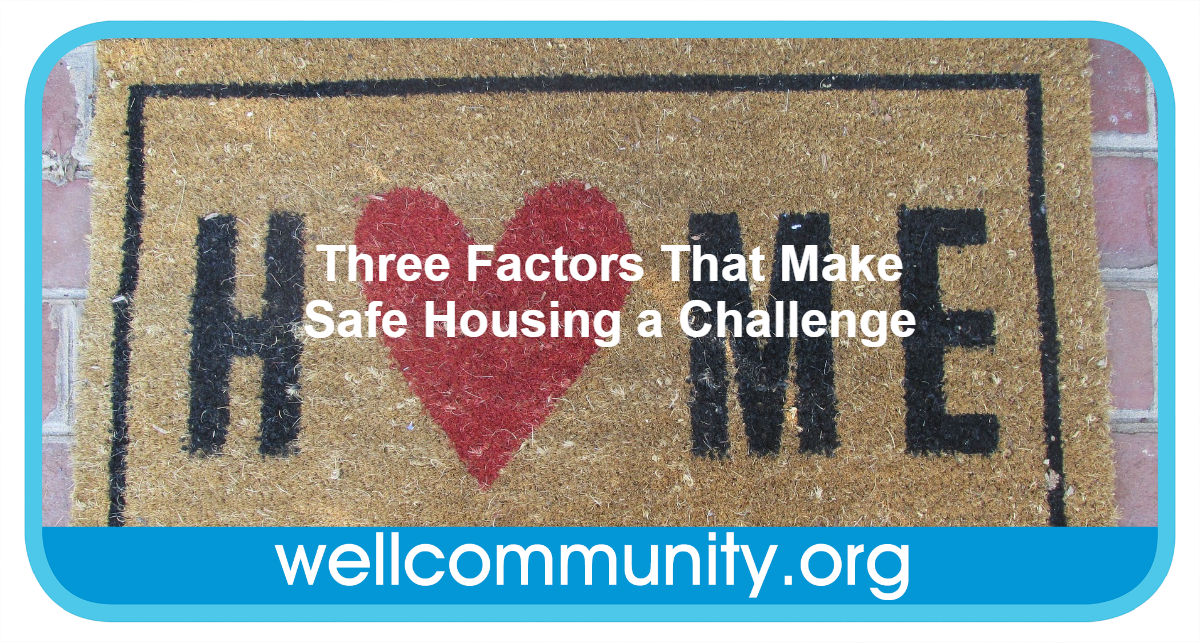 A stable, affordable place to live can make a big difference in a person’s ability to pursue recovery while dealing with metal heath challenges. As Mental Health America of Greater Dallas states, “Safe, decent, clean housing is a key factor in recovery for individuals with mental illness.” But, for many, this housing is elusive. According to the Substance Abuse and Mental Health Services Administration (SAMHSA), individuals dealing with mental and/or substance use disorders are often particularly vulnerable to becoming homeless or being precariously housed (they either have no shelter or they live in crowded apartments with friends or acquaintances in untenable situations and move often).
A stable, affordable place to live can make a big difference in a person’s ability to pursue recovery while dealing with metal heath challenges. As Mental Health America of Greater Dallas states, “Safe, decent, clean housing is a key factor in recovery for individuals with mental illness.” But, for many, this housing is elusive. According to the Substance Abuse and Mental Health Services Administration (SAMHSA), individuals dealing with mental and/or substance use disorders are often particularly vulnerable to becoming homeless or being precariously housed (they either have no shelter or they live in crowded apartments with friends or acquaintances in untenable situations and move often).
Without a safe place to call home, it’s incredibly difficult to follow a treatment plan and work toward recovery, and the consequences can be dire. Those who suffer from serious mental illnesses are more likely to be incarcerated, institutionalized and use emergency services when they don’t have a place to live, according to NAMI Texas. The organization also reports that a quarter of those experiencing homelessness are living with a mental health issue, and that over 60% of people who are chronically homeless suffer from a lifelong mental health challenge.
In 2007, leaders of The Well Community founded Jacob’s House, a City of Dallas licensed boarding house, because they recognized the great challenges that many who live with serious mental illnesses face in finding safe, stable places to live. “We are glad to provide this option for our members, but since we can only house eight men, it is only a tiny solution to a huge issue,” says Alice Zaccarello, Executive Director. Over 11 years later, most who struggle with severe mental health challenges continue to face daunting hurdles in obtaining and maintaining housing.
There are many factors that contribute to this great need. Here are three that play a big role.
Unemployment
Many who live with mental illnesses struggle to obtain or keep jobs, making it difficult for them to afford the cost of housing. One Well Community member, who lives at Jacob’s House and serves as House Manager, says he faced stigma in numerous forms in the workplace and struggled to hold down a job. Although he wanted to fulfill his responsibilities, the symptoms of his mental illness often got in the way, and he was unable to work for a number of years until he took the job at Jacob’s House.
Unemployment is commonplace for those dealing with mental health challenges. The National Alliance on Mental Illness reports that nationwide 80 percent of those who receive public mental health services are unemployed, even though 60 percent want to work. The unemployment rate among this population is even higher than average in Texas: over 85 percent.
Lack of Affordable Housing
A limited amount of affordable housing can add to the difficulty of finding a safe place to live, particularly in the Dallas area. A March 2018 study by the National Low Income Housing Coalition revealed that the Dallas-Fort Worth-Arlington area is among the bottom five metropolitan areas in the United States in the availability of low-income housing units: just 19 units exist for every 100 extremely low-income households, compared to the national average of 35 units per 100 households. The lack of acceptable housing means that people often become homeless or are precariously housed.
Discrimination
Those who deal with mental health challenges often face discrimination when seeking a place to live. The stigma that often surrounds mental illnesses and misconceptions about those who deal with these conditions can lead to mistrust or mistreatment from landlords and neighbors. And, individuals living with mental illnesses are often more vulnerable to being taken advantage of.
A group of 2017 studies by the U.S. Department of Housing and Urban Development (HUD) found that people with mental disabilities face significant barriers in both obtaining and maintaining rental housing. When compared with those not living with mental disabilities, individuals dealing with these conditions were less likely to be contacted by a landlord in response to an inquiry about a rental unit, to be told an advertised unit was available or to be invited to look at an apartment.
In addition, individuals living with mental illnesses were more likely to face unfair treatment from landlords, such as being charged higher fees without explanation. They also reported being monitored in ways that other tenants are not, and living in apartments that were inhospitable, unsanitary and unsafe.
At Jacob’s House, a group of men living with serious mental illnesses has found a home that’s safe, welcoming and supportive. Residents share meals, joys and sorrows while enjoying a sense of independence and benefitting from a caring community. James, a resident of Jacob’s house, sums it up: “This is a good house and I believe in it.”
The Well Community offers support and a place to belong for those dealing with serious mental illnesses. Your gift to The Well will help address underlying issues that lead to housing challenges among these individuals, and provide them with opportunities to pursue self-sufficiency.
Be sure to follow The Well Community on Facebook and Twitter to learn more about the challenges faced by those living with mental illnesses, as well as how The Well provides a place of community and support.
